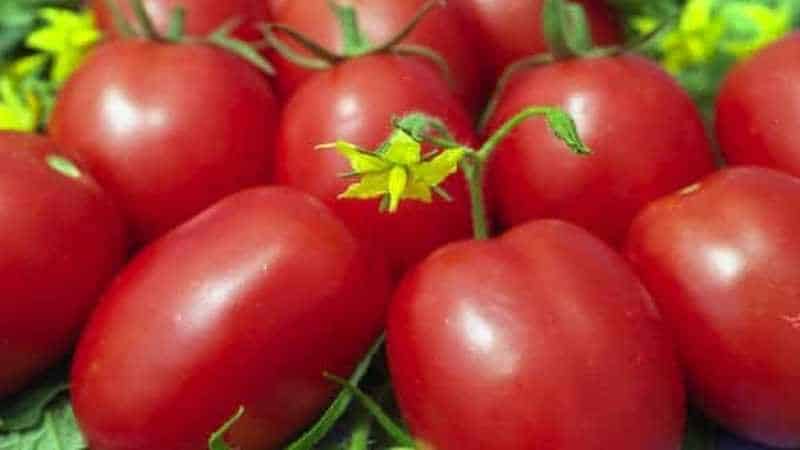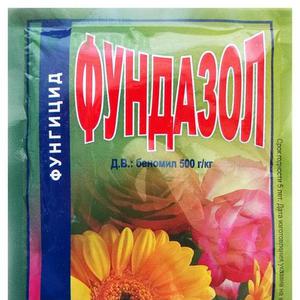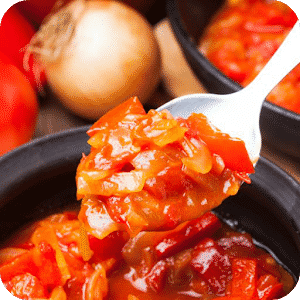One of the oldest varieties of vegetable breeding is the Gloria tomato: a time-tested variety
The Gloria tomato is one of the old but favorite varieties of our gardeners. It has been cultivated in Russia and neighboring countries for about 50 years—a record period for tomato varieties. It is unpretentious, produces a large harvest and has a wonderful taste. Good for fresh consumption, suitable for making pickles, sauces and juices.
In this article you will learn all the features of the variety and useful recommendations for growing it.
Description of the variety
The variety was bred in 1970 by the Moldavian Research Institute of Irrigated Agriculture and Vegetable Growing. In 1975, it was zoned in the North Caucasus, Tajikistan, central black earth regions, Ukraine and the Volga region. Having proven itself well in these territories, the variety began to be cultivated in other regions of the former USSR.
Tomato Gloria gives a high yield, up to 4 kg per bush. It does not require much attention and is suitable for both open ground and greenhouses. In open ground it grows up to a meter in height, in a greenhouse - up to 1.5 m.
The fruits are shaped like a plum, weighing from 100 to 200 g. They are sweet, with a slight sourness. They have a dense, elastic shape and at the same time quite fleshy.

Fruit characteristics:
- color – red;
- shape – round-oval (see photo);
- pulp – pleasant consistency;
- consumer qualities – high;
- transportability – good;
- keeping quality - about 60 days.
These tomatoes are ideal for fresh consumption and in salads, and are good for pickling and canning.
How to grow seedlings
The time for sowing Gloria tomato seedlings depends on the growing location. For open ground, sow seeds no earlier than the end of February, for a greenhouse - at the beginning of March.
Important! When choosing tomato seeds, be sure to pay attention to their release date. The best germination will be for seeds produced no more than 2 years ago.
Seed preparation
To begin with, the seeds are soaked in a salt solution and empty ones that are not suitable for sowing are identified. For disinfection, soak in 1% potassium permanganate. The product “Kornevin” is used to saturate seeds with nutrients.
Then you need to germinate them. To do this, wrap it in gauze or cotton cloth moistened with water, pack it in a plastic bag and place it on the battery. After 3-5 days they hatch. Start sowing. For sowing, you need to purchase nutritious soil for vegetables and drainage (you can use regular eggshells).
Soil for sowing future tomatoes can be found at any gardening store. The store-bought mixture is diluted with garden soil, but there is a danger that the soil brought from the street will be contaminated with bacteria or a virus.
To prevent this from happening, 3-5 days before sowing we bring soil from the beds so that it has time to warm up. To disinfect, pour it well with a solution of potassium permanganate (1-2%) and let it stand for another 1-2 days. After this, mix the purchased soil with garden soil in equal proportions and fill the containers for seedlings with them. There are two types of containers.
Individual pots
Take plastic cups and cut special holes in the bottom for drainage. Then pour the prepared drainage onto the bottom.This could be expanded clay, small pebbles or eggshells. Fill in the soil and water well with warm water.
Make small depressions (1-2 cm) in the ground and plant 2-3 tomato seeds in them to ensure germination. Spray carefully with a spray bottle. We cover the finished containers with film and place them in a warm place.
Important! After sowing the seeds and until germination, water the soil only with a spray bottle. Running water will cause the seeds to sink deep into the ground and not be able to sprout.
General capacities
Containers for seeds are chosen at a shallow depth, sufficient for germination. Fill with prepared soil and water well. Next, mark the approximate distance for future rows, there will be 3-4 cm between them. Place tomato seeds in the resulting rows every 2 cm. Using a wooden stick (you can use a sushi stick), push the seeds to a depth of 1-2 cm. Then sprinkle with soil. There is no need to water the crops anymore.
The finished containers are covered with cling film or covered with glass and placed in a warm room, closer to the radiator, until the first shoots appear.
After 3-7 days it is possible to see the first shoots. It is necessary to move the shoots to another, cooler room, or adjust the temperature in the same room to 16-18°C.
For a good result, you need to remember that seedlings need to be in the light for at least 12 hours a day. You can purchase a lamp for additional illumination in a special store. Due to lack of light, the sprouts begin to stretch, become thin and brittle.
Hardening of seedlings

When transplanting, especially into open ground, plants experience severe stress. To soften it, the hardening procedure begins 1.5-2 weeks before planting. Watering is stopped within a week.The seedlings are taken out of the room to a cool place. An enclosed balcony is good for this. To start hardening, choose a warm sunny day.
2-3 hours after sunrise, when the temperature in the yard rises above 10°C, we take the plants out for an hour. Increase this time by another hour every day. 3-4 days before planting, the seedlings can be left to spend the night outside (in good weather without minus).
If there is still a threat of frost at night, return the plants indoors and reschedule their planting accordingly. Planting seedlings that have been left outdoors for less than three days is dangerous - they can get sick.
Important! To prepare the soil before planting, spray it with Fundazol.
Features of caring for seedlings
In order for the yield to be high, it is necessary to organize proper care of the bushes.
Picking seedlings
The process of picking seedlings is important if you planted the seeds in a common container, and as they grew, the seedlings became crowded. They will interfere with each other, since during the period of active growth, plants require a lot of useful substances and oxygen. This is especially important for a growing root system.
Important! If the above-ground part does not receive oxygen, then the roots, especially on dense soils, begin to experience oxygen starvation.
Top dressing
The first feeding is done no earlier than 1.5-2 weeks after picking (if the seedlings were planted in a common container). After two weeks, you can do the second feeding. Both chemical compounds (can be purchased at the store) and organic fertilizers mixed at home are well suited for fertilizing.
As a fertilizer, you can take a mixture of 20 g of superphosphate, 10 g of urea and 15 g of potassium chloride, mix in 10 liters of water. An infusion of ash (1 tbsp per 2 liters of water, let stand for 24 hours) and eggshells are also suitable (a three-liter jar is filled 2/3 with egg shells, then with water and infused for 3 days).
Timely fertilizing is the key to a bountiful harvest.
Important! The last time to fertilize the seedlings is no later than a week before planting in open ground.
How to grow tomatoes

For tomatoes, choose a sunny place, well protected from wind and frequent drafts. Damp, low areas in which groundwater is located close to the surface are not suitable. The root system rarely takes root in such places; the tomato does not produce a good harvest.
It is not recommended to grow the crop in the same place every year. If the area of the plot does not allow for crop rotation or you are planting in a greenhouse, disinfection or changing the top layer of soil (4-5 cm) is necessary.
If the previous bushes were sick, the soil layer is cut off by 10 cm. After this, the soil is sprayed with a hot solution of copper sulfate. In place of the removed soil, a fertile mixture of turf or leaf soil, sand, and rotted humus is poured.
Landing
To successfully grow tomatoes, gardeners advise allocating at least 0.3 square meters per bush. m. Before planting, the soil must be shed with hot water and potassium permanganate.
Solution recipe:
- boric acid 1/3 teaspoon;
- potassium permanganate on the tip of a toothpick;
- 3-5 drops of iodine;
- 3 liters of water.
Application:
- Mix boric acid in warm water (40-45 degrees) until the crystals are completely dissolved.
- Dissolve potassium permanganate in a separate container in 3 liters of water until a pale pink color is obtained.
- Add 3-5 drops of iodine and dissolved boric acid.
Carefully remove the seedling. Tear off all the leaves, leaving the top three.Lower the bush with a lump of earth into the hole, add compost, compact it, and cover it with dry soil. Do not cover the stem with soil.
Organize from above mulch layer 10 cm of sawdust, straw or withered grass. Only after 15 days are the plants hilled to a stem height of up to 12 cm.
Attention! At the time of planting, the soil should be heated 20 cm deep to +10°C...+12°C. In May you can plant it in a permanent place. If it is cloudy on the planting day, then you can plant in the morning, if it is sunny, then in the evening.
Bush care
Seedlings are needed regularly water, weeding and hilling. When the ovaries appear, the tomatoes are watered once a week. They do not tolerate excess moisture, which leads to the development of fungal diseases. Water under the root with warm water.
After each watering and after rain, it is recommended to loosen the soil under the bushes. In hot weather, this reduces the evaporation of moisture, and in cold weather it reduces the risk of infection with fungal diseases and ensures optimal gas exchange between the earth and air.
A peg must be placed next to each bush on the north side. Tethered bushes are easier to process and water.
Important! For gartering, prepared wooden pegs are used. They are installed at a distance of 10 cm from the stem to a depth of 30 cm. It rises above the ground to 70-80 cm. The bush is tied to this peg as it grows.
To obtain more fruits and their rapid ripening, the bushes need shaping. Gardeners advise leaving one main stem and removing the rest.
Stepson procedure must be performed regularly. Those sprouts that form from the base of existing brushes must be removed. You also need to pinch off the leaves growing below the first branches.
To fertilize tomatoes, mineral compounds mixed with humus in a ratio of 1:3 and simple fertilizers are used:
- urea;
- ammonium nitrate;
- ammonium sulfate;
- nitrogen.
It is recommended to feed tomatoes three times during the summer.
The harvest of tomatoes grown in open ground begins in mid-July and continues until the end of October. Fruits that will be collected after frost are not suitable for storage and consumption.
The nuances of growing in open ground and in a greenhouse
The Gloria tomato variety has its own nuances when choosing a planting site. Take them into account, and you will be able to reap a great harvest. It is necessary to transplant seedlings into open ground in cloudy weather, in the morning or afternoon, at a temperature of +18°...+21°. The Gloria variety has a negative attitude towards sudden temperature changes.
It is better to avoid transplanting in the open, scorching sun. This can have a detrimental effect on young plants. The land must be prepared, fed and watered.
At first, you need to cover the tomatoes with soft film overnight. During the day, the film is removed to allow air circulation.
In a greenhouse, it is important to monitor the humidity level. Most often, late blight appears in greenhouses due to high humidity and sudden temperature changes. The water temperature for irrigation should be at least 20 degrees.
Harvesting and application

There are no difficulties during harvesting. The main feature of Gloria fruits is that they are large, but not very elastic. It is because of this that you need to carefully stack the fruits, each separately, so as not to crush them. Tomatoes can be consumed in various forms.
Tomato is consumed fresh and homemade sauces and juices are made from it. Pickling, marinade, lecho and adjika turn out wonderful.
Advantages and disadvantages of the variety
Like all varieties, Gloria has its pros and cons. Let's list and analyze the main ones.
Pros:
- A fairly productive variety, you can harvest 2-4 kg from one bush;
- simple and unpretentious to grow;
- easily tolerates drought and also does not suffer from excess water;
- resistant to late blight.
There are few disadvantages:
- necessity garters;
- tendency to fruit cracking.
Farmer reviews
Gardeners who have already tried the variety in their gardens note the bright taste of the tomatoes and the juiciness of the fruits.
Tamara, Moscow: «Very tasty, especially in the greenhouse. They were not the largest in size in my garden, but they were the sweetest and meatiest.”
Elena, Saratov: “Very tasty and meaty tomatoes. I did not experience any difficulties in landing. And the harvest is so large that you can make all kinds of twists, pickles, tomato paste and juice.”
Galina, Berdsk: “A good variety. Easy to care for, reliable, productive and tasty.”
Conclusion
The Gloria variety is ideal for those who want to get the largest possible harvest and pleasure from care. The obvious advantage of this variety is good transportability, shelf life of tomatoes up to 60-70 days, pleasant sweet taste and average weight - from 120 to 200 g.
The main disadvantage of this variety is that the fruits often crack. Therefore, they must be collected and stored with extreme caution.